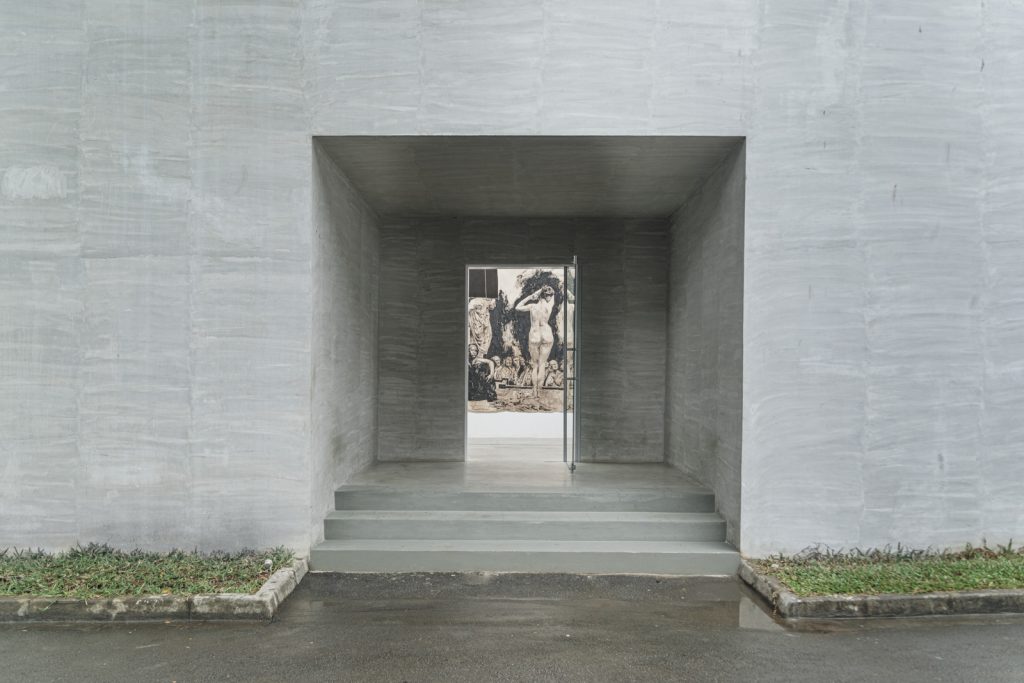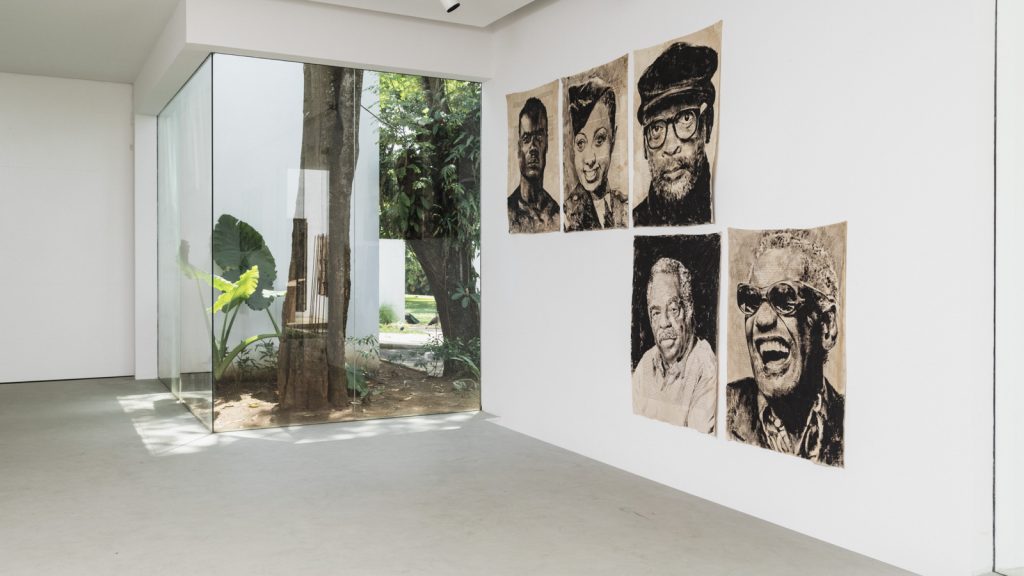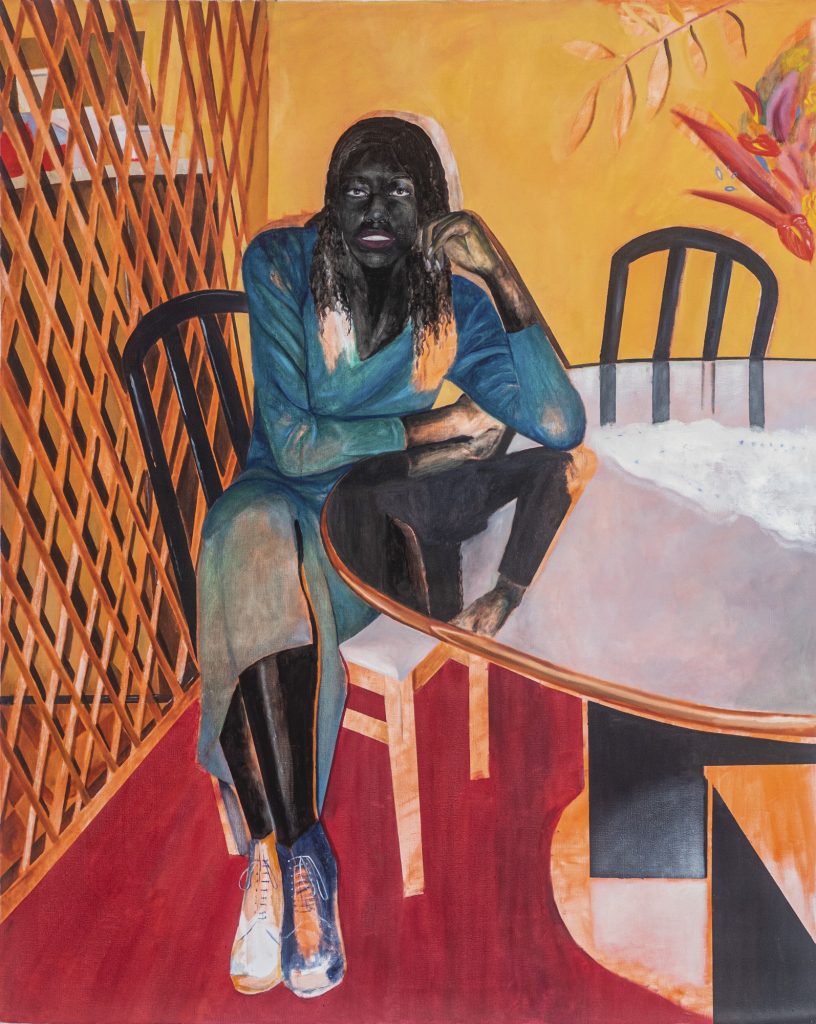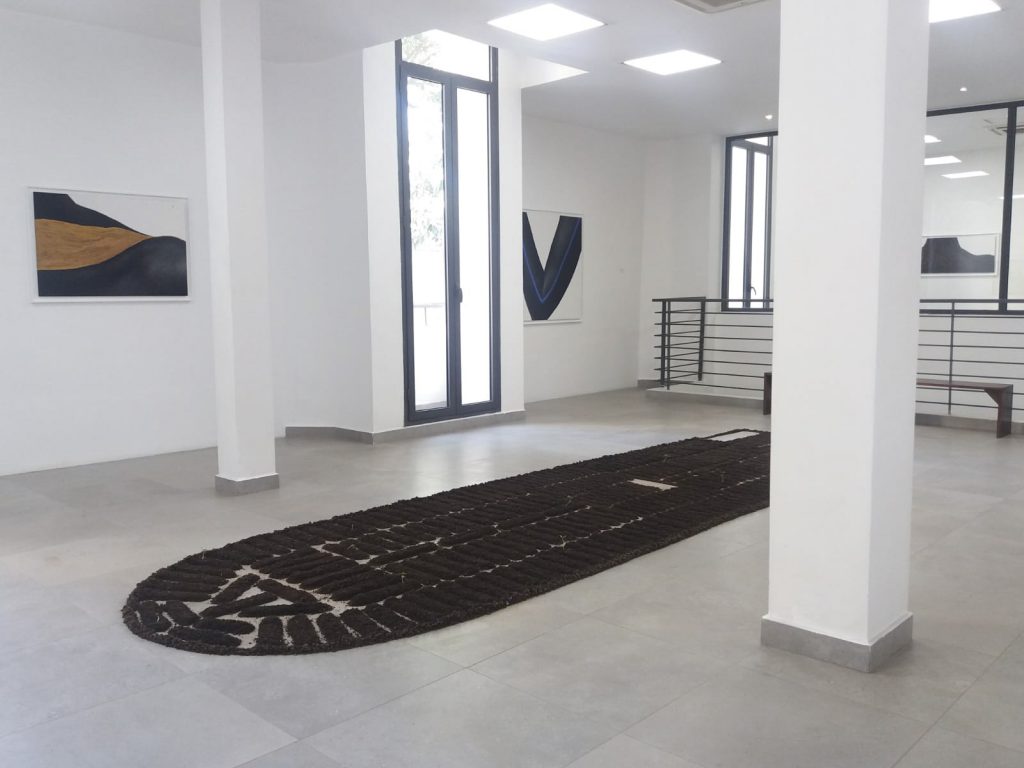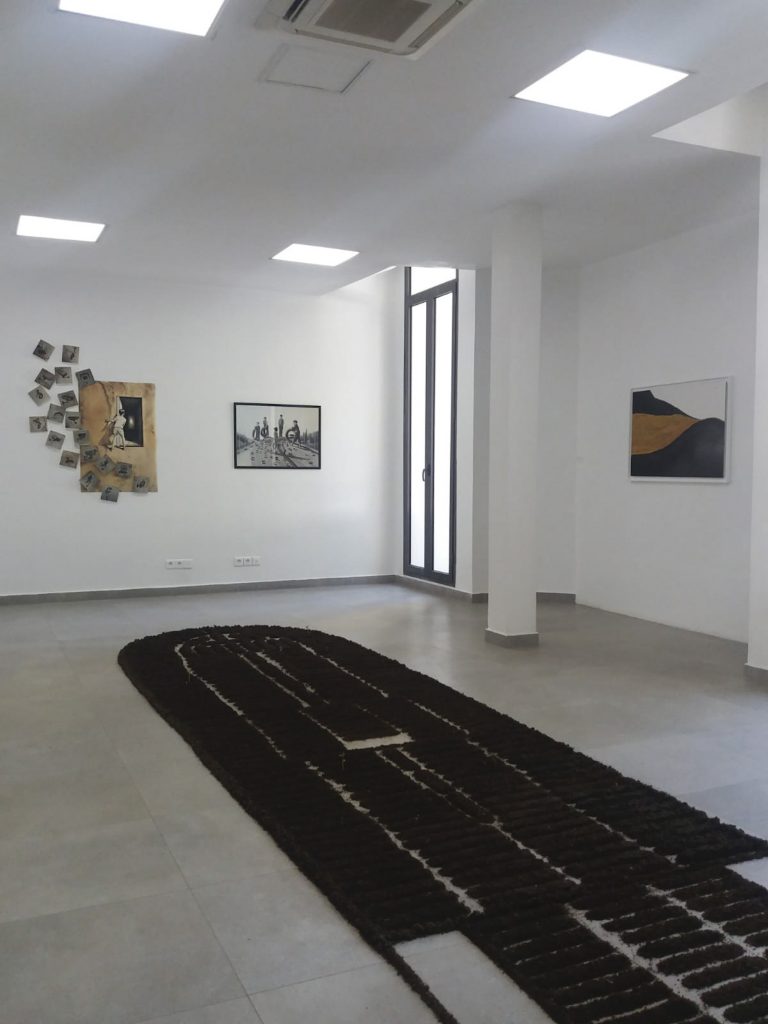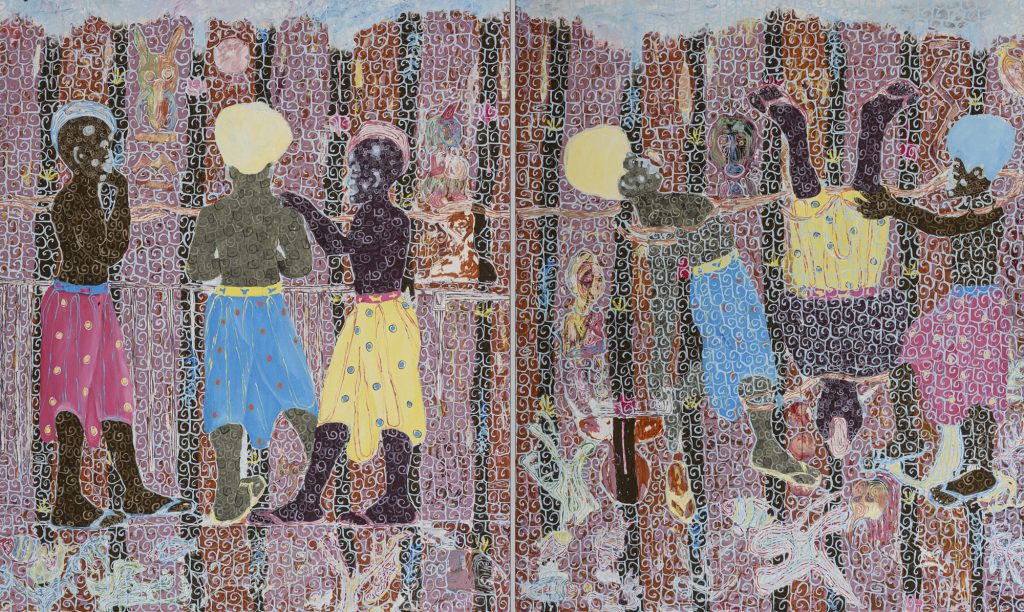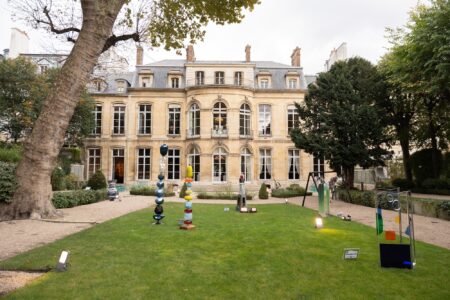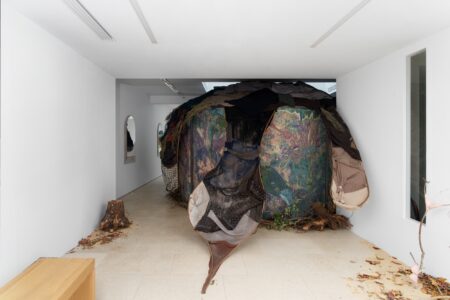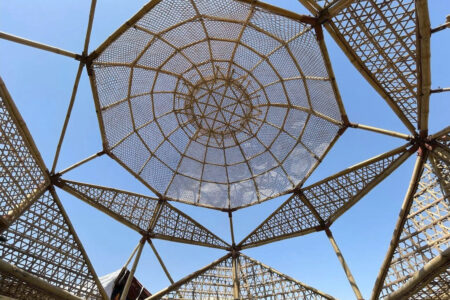
Working Across Worlds: An Interview With Cécile Fakhoury
Gallerist Cécile Fakhoury speaks with TLmag about her current exhibitions in the Ivory Coast, Senegal, and France, how artists work across multiple worlds, and the imperative of physical shows rather than their digital alternatives.
Gallerist Cécile Fakhoury has created several spaces spanning the Ivory Coast, Senegal, and France to showcase works by both established and up-and-coming African artists. In this interview she speaks with TLmag about the current exhibitions, how artists work across multiple worlds, and the imperative of physical shows rather than their digital alternatives.
TLmag: You have created several exhibition spaces, with different purposes, in multiple countries. Could you give some background on the process and intention of creating these galleries?
Cécile Fakhoury (CF): I used to work in Paris, in auction houses and different art galleries, and I’d also often spend time in the Ivory Coast and West Africa. I decided to move to Abidjan in 2010, and I opened my first gallery space there in 2012. The concept of developing a gallery came from being in touch with a lot of different artists, who were very responsive to the idea. There were already some galleries in the area at the time, but because of the complicated situation in Abidjan the art scene was very slow. At the time it was not very easy to find a space to rent, so I built one instead. We decided to make it a very simple space. It’s not an obvious choice for the arts scene here to make something so minimalistic, but it functions very well with the ideas and concepts of the artists I work with. The gallery in Dakar is more similar to the kind of gallery you would find in Paris, but at some point I would like to have the same kind of space that I have in Abidjan. It’s a work in progress. I also have a showroom and offices in Paris.
TLmag: Alongside the main gallery in Abidjan, you have also recently opened a Project Space to support young artists. How does this space work alongside the galleries?
CF: We just opened this space last March, so it was right on time with the pandemic! When I first opened the main gallery in Abidjan, I exhibited affordable works by very young artists, but as we’ve grown together they have become more established and now they are well placed in museums and institutions. Financial balance is hard to achieve with young artists featuring accessible artworks. A few years ago I had the idea to create a dedicated space for this emerging generation. My hope is that it becomes a space to discover new names.
TLmag: Can you share a bit about your current exhibitions?
CF: We currently have two exhibitions on show in Abidjan. One is an exhibition of paintings by Kassou Seydou. Seydou is from Senegal, and his work is based on the idea of observing his immediate environment and creating links to the wider world. He investigates moments of imbalance, a lack of equilibrium, and the disconnection between human beings and the land they inhabit. With this local-global perspective, he questions the situation of travel and mass immigration from Africa. He has a very poetic way of thinking and signifying these issues. In the Project Space, we have a very young artist from Guadeloupe, Elladj Deloumeaux. We try to support young artists like Deloumeaux without putting too much pressure on them. We want to let them grow and understand what they want to do, and how they want to do it. Deloumeaux’s drawings and paintings are about searching for his identity in Africa, creating links between Caribbean and West African geographies. The portraits you see in the gallery are of different family members. It’s a very intimate, very personal show. In Dakar, we have a group show, called ‘I Have This Memory, It Is Not My Own’. The works shown are by five young female artists. The exhibition is about memory and writing a new history, making new images. All of the works carry something very tangible and very beautiful.
TLmag: The current exhibitions each seem to have a common theme or basis in memory and history. Why do you think this is something being explored in such a personal and relational way?
CF: I think this is something that is always being explored. You can find and create many links with the dynamics and realities of society today. But these ideas of memory, of having roots, of where we come from and where we’re going, and how we can move through these questions together – all of this is a spirit that many artists carry and are constantly thinking about.
TLmag: With the creation of these galleries and exhibitions you have an aim of expanding the platforms and exposure given to African artists, from both the continent and the diaspora. How does this mix of cultures and working between different geographies influence the way you view your artists’ work?
CF: It’s true that the artists I work with have a very multicultural way of seeing things. To me, it’s almost obvious that we cannot have one singular, bordered geography. I think many artists bring us the idea that today we do not only exist within the borders of one place. It’s almost an organic part of how the world functions today. It’s not about an economy, but how we mix our thoughts and ideas. Many artists in the gallery try to bring perspectives of different worlds. We see that the world we live in is complex, but also that in some way we are all linked together.
TLmag: Has the ever-changing situation with the coronavirus pandemic had any bearing upon how you exhibit or how you frame your programming?
CF: Working with the digital is not unfamiliar for us. We have been doing this since we opened the gallery as a lot of our collectors are not able to visit in person, but the pandemic was a good moment to improve how we do this. For my part, the pandemic showed me that going digital has its place, but I really want to see it as a continuation of what we are able to do physically in our gallery. For artists, having shows is so important, and I think I am doing this job to provide opportunities for that. So after everything, I want to be able to keep these spaces, and I fight for that every single day. We were able to find a balance between the physical and the digital, but no matter what I will keep working the way I used to – within space, with artists.
‘Comme La Jungle, La Mer’ by Kassou Seydou is on show in Abidjan until March 6th, 2021
‘Un Est Multiple’ by Elladj Deloumeaux is on show in Abidjan until March 6th, 2021
‘I Have This Memory, It Is Not My Own’ is on show in Dakar until 19th February, 2021
cecilefakhoury.com @galeriececilefakhoury
